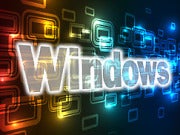
1 . Put them on the shelf with your Microsoft Kin (The Kin lasted 48 days on the market before being canceled; the HP TouchPad lasted 49.)
2 . Use your pebble-shaped Palm Pre as a stone in your Zen garden.
3 . Turn your Palm Pixi into a table-leveler. You can put it underneath wobbly tables instead of sugar packets.
4 . Throw it in your junk drawer with your Palm Pilot and Palm Treo.
5 . Put your TouchPad under your pillow and hope the tablet fairy brings you an iPad 2
But seriously, this is a sad event for many loyal Palm fans. Hewlett-Packard yesterday announced that it is discontinuing the sale of devices running WebOS, the operating system that the computer maker acquired from Palm last year. The news means that HP will stop selling the recently launched TouchPad tablet as well as WebOS-based smartphones, such as the Palm Pre 2, HP Veer, and the upcoming Palm Pre 3.
The Palm Pre was the first device to debut with the WebOS software, and it caused quite a stir when it was introduced at the Consumer Electronics Show in 2009. The software won praise from experts, such as CNET Reviews senior editor Bonnie Cha, who said in her original review that the it offered "unparalleled" multitasking and notifications capabilities. She also noted that it had a sharp multitouch display and excellent Web browser and multimedia integration.
Unfortunately for Palm and the company's loyal following, the Pre and the WebOS devices that followed never made much of splash in the market. The Palm Pixi, Palm PrePlus, Palm Pixi Plus, Palm Pre 2, HP Veer, Palm Pre 3, and the HP TouchPad have collectively garnered a relatively small following.
Still, Palm fans have been a loyal bunch, many of them are former Treo fans. While the audience for the products has been tiny compared to their competitors, there are still some consumers with older or even recently purchased WebOS devices. So what are these consumers to do?
CNET contacted HP to find out what the company plans to offer in terms of support for its existing WebOS products. And an HP spokesman sent a one-sentence statement: "HP stands by its customers. We will continue to support existing products."
Exactly what this means is still a bit unclear. HP has a page on its Web site that describes support for the various Palm products. There are four main tiers of support for the Palm products:
Current: These products include ones that have been recently released, which includes all of the WebOS devices and the Palm Centro. Consumers can expect to be eligible for the full range of HP consumer support services that are available through sales channels in their region. Of course, what happens to HP's traditional product support is also in question now that HP says it plans to spin off its consumer PC business.
Mature: These include products that are no longer sold by HP and its resellers. Products in this category include many of the former Palm Treo phones. But technically, it will also soon include the WebOS products. This class of Palm product receives some HP support, but the company notes that support "may be limited or evaluated by HP in preparation for the next support lifecycle phase."
Legacy: These are products that haven't been sold by Palm in a very long time. (Think the oldest versions of the Palm Treos.) Palm offers paid phone support for these products and you may search or post a question in the Community Help Forums (English). Software updates to add compatibility with new Windows or Mac OS releases, service packs, and mail servers may not be available for legacy products, the company says on the Web site.
Historical: These include products from Palm and Handspring that haven't been available for ages. Online support materials are no longer available for these products. And HP doesn't offer assisted support via phone or Internet chat. If customers need help with a historical product, HP suggests searching or posting a question in the Community Help Forums.
HP also hasn't answered questions about whether or not it will allow customers to return recently purchased devices for a refund. But it is likely that the only refund customers can expect are the ones offered by retailers or wireless carriers where their WebOS devices have been purchased.
Best Buy, which sells WebOS smartphones and the TouchPad, allows customers to return products, such as computers, monitors, digital cameras, iPads, tablets and radar detectors, within 14 days of purchase. There is also a 25 percent restocking fee.
More other business:
Tagcloud: WebOS smartphone , tablet , Dell vostro 1520 battery , dell vostro 1500 battery


